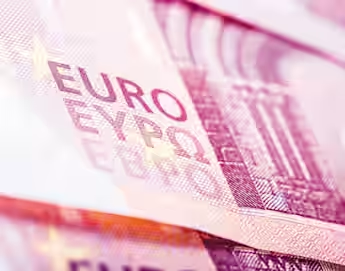Locations
This month, the German Federal Cartel Office (BKartA) published the Annual Report 2019. In summary, the BKartA covers the following topics:
Corona
Against the background of the Corona Pandemic, the BKartA emphasizes that companies are still encouraged to address cooperation agreements relevant to competition law, in order to obtain legal certainty. The focus is primarily on cooperation in production to avoid bottlenecks, cooperation in logistics, distribution and warehousing, and the re-start of complex supply chains.
Cartel prosecution
In 2019, the BKartA imposed fines totalling € 848 million on 23 companies/associations and 12 natural persons.
For this purpose the BKartA has published an overview of selected fines (view here).
In addition, the BKartA has summarized the cases of the year 2019: Technical building equipment, wholesale of pesticides, plate embossers, liquified gas suppliers, steel manufacturers (quarto plates), car manufacturers (purchase of steel), bicycle wholesalers (vertical price fixing), magazine lending services (customer allocation.
Merger control
The BKartA received about 1,400 notifications in 2019. 14 second-phase proceedings were carried out, with four prohibitions, six withdrawals, one conditional clearance and three clearances.
In this context, the BKartA also points out the support of a guideline: In 2019, the BKartA supported the Federal Association of the German Ready-Mixed Concrete Industry (Bundesverband der Deutschen Transportbetonindustrie e. V.) in developing a guideline on the antitrust admissibility of bidder and supplier consortia in the ready-mixed concrete industry.
Digital Economy
In the field of the digital economy, the BKartA highlighted the cases of Facebook and Amazon particular.
In the field of digital platforms, the BKartA has accompanied the following platform projects in particular: unamera - a trading platform for agricultural products (2020), XOM Materials - a trading platform for steel products (2018), ECEMENT - a cement trading platform (2017), ADAMOS - a platform for mechanical engineering for the topics Industry 4.0 and Industrial Internet of Things, OLF - a trading platform in the mineral oil sector (2020)
In addition, the Federal Cartel Office is conducting a sector inquiry in the field of online advertising, which was further advanced in 2019.
Energy Industry
In this area, the BKartA and the Federal Network Agency published a guideline in September 2019 for the control of abusive practices in electricity generation/wahlesale trade sector under antitrust and energy wholesale law. The guideline explains in detail the objectives, the rules for the application and the scope of control of abusive behaviour in electricity generation.
In addition, the German Federal Network Agency and the BKartA published their joint monitoring report in November 2019 on developments in the electricity and gas markets.
Trade
In the retail sector, for example, the BKartA prevented a planned purchasing cooperation in the furniture sector.
In September 2019, the German Federal Cartel Office had taken up the anniversary discount for "75 years of XXXLutz" which the XXXLutz Group had demanded as a lump sum. Due to the insistence of the Bundeskartellamt, XXXLutz waived this flat-rate claim of 7.5 per cent for two three-month periods in the year 2020 towards its suppliers.
Consumer Protection
With the 9th amendment to the German Competition law, which came into force at the beginning of June 2017, the BKartA was given powers in economic consumer protection for the first time.
- Comparison portals: In April 2019 the Bundeskartellamt published the results of a sector inquiry into online comparison portals.
- Smart TV: In July 2020, the final report of the Smart TV sector inquiry was published.
- User ratings on the Internet: A third sector inquiry in the field of consumer protection deals with user ratings on the Internet. User ratings are often a central decision criterion for consumers when making online purchases - besides price.
Competition Register
The purpose of the competition register is to provide public contractors, sectoral contractors and concession awarding authorities with information on relevant legal violations in award procedures quickly and electronically. The electronic register is to go into operation at the end of 2020. With the data stored in the competition register, the public contracting authorities, sectoral contracting authorities and concession awarding authorities are able to receive the necessary information in a timely manner in order to be able to examine the grounds for exclusion in a reliable manner.

